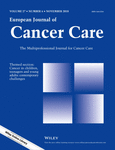Pediatric cancer families’ participation in whole-genome sequencing research in Denmark: Parent perspectives
Abstract
With an impending introduction of genome sequencing into paediatric oncology to facilitate personalised medicine, this study examines parent perspectives on participating in whole genome sequencing (WGS) research in the difficult weeks following diagnosis. As an embedded part of Sequencing Tumor and Germline DNA—Implications and National Guidelines (STAGING), a project aiming to implement WGS of all newly diagnosed paediatric cancer patients in Denmark, a parent perspective study was conducted by a clinical geneticist and anthropologist to document pragmatic, social and ethical dilemmas. Following genetic counselling, systematic debriefings were held and the anthropologist carried out in-depth parent interviews (N = 30 parents to 15 patients). Parents were approached about STAGING 2–28 days after diagnosis. The majority of interviewed parents reported that an early approach had been feasible for them, a few found it too early. Participation was explained in terms of altruism and a desire to learn more about why their child had developed cancer. A number of parents openly disagreed about the amount of information they wanted reported back. Enrolment in WGS research around the time of diagnosis is feasible, however, flexibility from researchers is essential. Notwithstanding high participation rates and a tendency to choose full disclosure, caution as regards the consequences of participating in WGS research is warranted.




